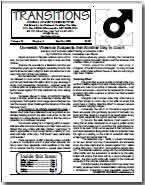
Australian organisations and programs working with dads are encouraged to use these logos and messages as part of their everyday practice.
To use these logos, click on the appropriate image on this webpage and ‘cut and paste’ into your document. Otherwise click here to download a copy of the Father Inclusive Practice logos and messages as a Word document.
The 2011 Men and Family Relationships Forum at Perth has released a series of freely available logos for programs to use, that promote father inclusive practice issues and its value for children, men and women.
These logos feature either an image of two hand-prints or a father holding his child in the air. The two messages are:
- ‘Dads and their children – benefit from time together’
- ‘Men at their best – help children flourish’
Programs are encouraged to use these logos on:
- Promotional materials to men and families in your community about programs/services
- Reports to Managers within own and other organisations
- Reports to Government and other funders
- Conference presentations
- At the bottom of email signatures
What are the benefits of using these logos?
1. Builds links between programs and organisation that actively engages men and fathers in their service provision.
The use of these logos develops national links with other organisations and programs that have a similar focus. It reinforces the following messages that research has taught community service and counselling practice.
2. Involving fathers in program provision is essential if the best outcomes for children are to be achieved.
The impact of time with and closeness between children and their fathers is well recognised. Recent studies indicate similar messages across different contexts:
- Research evidence continually show that closeness to fathers (resident or non-resident) across the whole lifespan is beneficial for all the physical health/ social/ psychological/ emotional/ educational factors.
- Adolescents who are close to their father report higher self-esteem, less delinquency, and fewer depressive symptoms, better grades, less substance use than adolescents who are not close to their father. Irrespective of the mothers’ level of health and activity, it is the fathers’ level of activity that is the strongest indicator for obesity in children.
- It is also recognised that closeness to fathers reduces violence similarly in families.
3. Professionals should continue to increase their attention on efforts to foster and support father-child relationships.
A meta-analysis of studies on attachment interventions designed to enhance positive parenting behaviours found that those that included fathers were, on average, more effective than those that involved mothers only. Including fathers in such interventions will be more effective if the unique trajectories of father-child relationships are well understood and taken into account. Training for practitioners should include material specific to father-child attachment and relationships. However, it is important to focus not only on areas of difference between mothers and fathers but also on areas of commonality.
4. Prenatal and early parenting educational curricula and materials should cover father-child relationships.
Both mothers and fathers need to understand that father-child attachment is important, that it may develop more slowly than mother-child attachment and that fathers (with the support of mothers) will likely need to make conscious efforts to hold and interact with their babies. While it makes sense to honour and support the role of play in father-child attachment, it may be a mistake to overemphasize the fathering role of “playmate.” For one thing, evidence suggests playing with children is already something many fathers do very well. Secondly, families and fathers are very diverse, and play may be more central for some fathers than others. It is also important to educate mothers and fathers about the role of holding and caring.
5. Interventions that promote physical contact or help fathers learn to understand their babies’ cues are likely to promote father-child attachment.
As noted earlier, fathers tend to have fewer interactions with young children. While they often begin to catch up to mothers when babies are a little older, some fathers may need extra support to interact with their children in ways that support secure relationships. Interventions that enable fathers to develop care giving skills may have the “side effect” of facilitating early father-child attachment.
6. Interventions that promote and support sensitive father-child play will most likely enhance or protect father-child attachment.
Many programs for fathers are activity based. Dads and kids playgroups offer a “soft” entry point to people eager to improve fathers’ parenting skills. However, based on the research presented here, any program that enables enjoyable father-child interaction in a supportive environment is likely to be beneficial to father-child relationships and fathers’ interaction skills.
Play also tends to be something that fathers are comfortable with and good at, and children usually love to play with their fathers. In other words, the unique kind of responsiveness to fathers that children develop through father-child play is an asset to work with in programs and interventions designed to promote father-child relationships.
To use these logos, click on the appropriate image on this webpage and ‘cut and paste’ into your document or email. Otherwise, download a copy of the Father Inclusive Practice logos and messages as a Word document – click here.
For more information about the research into fathers, see the book ‘The Dad Factor – How father baby-bonding helps a child for life’ by Richard Fletcher, click here.
Click here for a summary of the Canadian Research by John Hoffman – Father factors – What social science research tells us about fathers and how to work with them? (948 KB)
To download a copy of the four logos (high resolution PDF), click here or
Logos as JPEG Files
- Logo 1 ‘Dads and their children – benefit from time together’
- Logo 2 ‘Dads and their children – benefit from time together’
- Logo 3 ‘Men at their best – help children flourish’
- Logo 4 ‘Men at their best – help children flourish’
Source: Father Inclusive Practice Logos (http://groupworksolutions.com.au/FatherInclusivePractice_logo)


